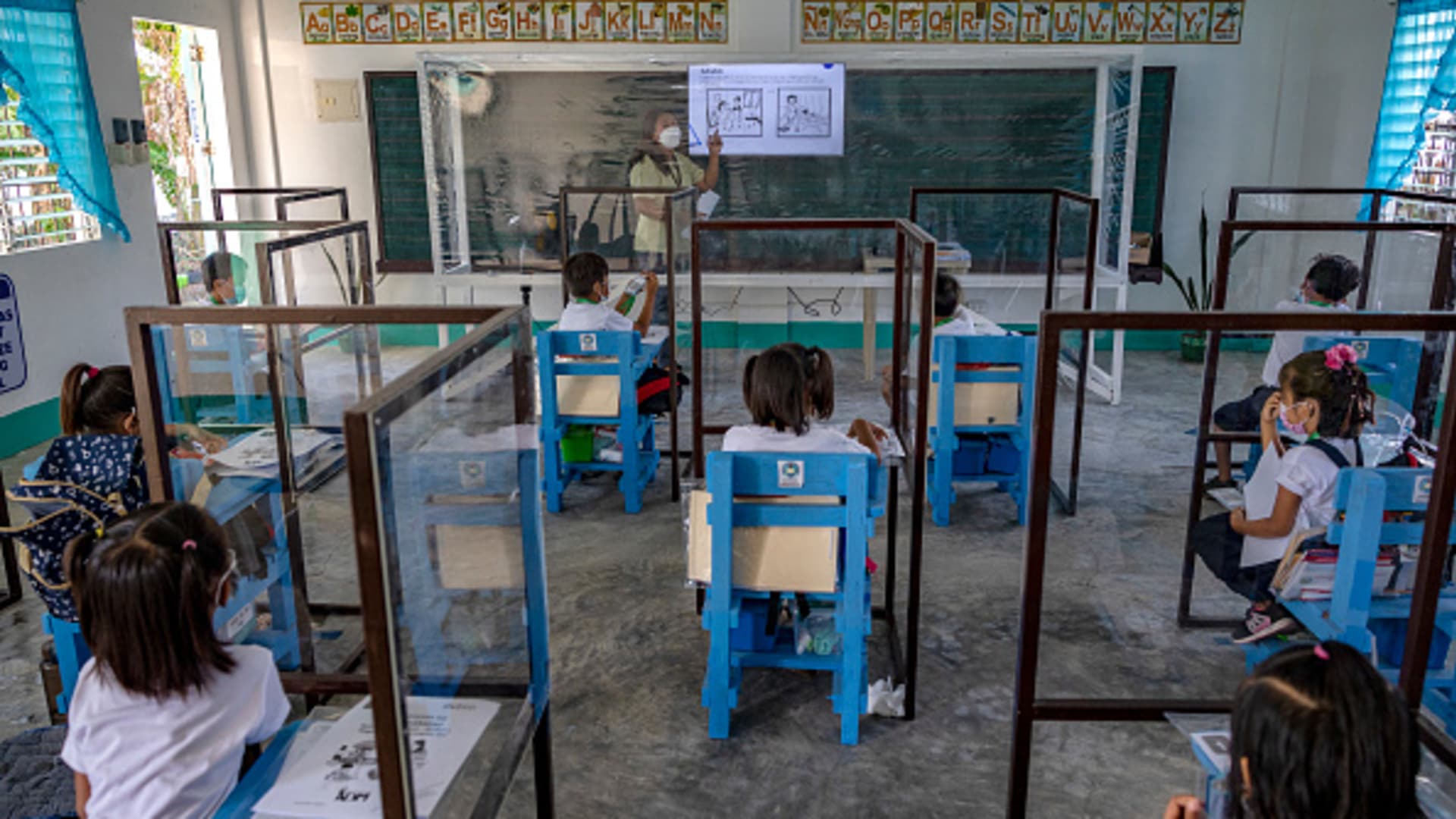Elementary students sit inside dividers as preventive measure against Covid-19, as they attend physical classes at Longos Elementary School on Nov. 15, 2021 in Alaminos, Philippines.
Ezra Acayan | Getty Images News | Getty Images
School closures during the pandemic could erase over $500 billion of potential economic growth from a handful of Asian countries, according to Oxford Economics.
The countries are: India, Indonesia, Malaysia, the Philippines and Thailand.
related investing news

From 2021 to 2035, each of these economies may lose 0.3% and 0.8% of potential GDP per year on average, according to a report by the economic advisory firm.
As a result of pandemic-induced school closures, those countries could lose a collective GDP of approximately $511 billion.
Schools throughout the world were forced to close when the Covid pandemic hit in 2020, and students had to move from face-to-face lessons to remote learning for many months on end.
Schools in the Philippines were fully or partially closed for around 18 months between February 2020 and March 2022 — longer than the other countries mentioned, the report said.
Because of that, the Philippines could see the highest loss in potential GDP and investments between 2021 and 2035, according to the global research firm.
In comparison, schools in Thailand were fully or partially closed for 10 months, the shortest time among the five countries. Thailand is expected to see the least loss in potential GDP and investments during the same period.
However, the report highlighted that Thailand has a lower GDP and people had lower levels of education to begin with, “which means there is a lower base to lose out from.”
Investment losses
Many students from these developing economies come from lower-income households and did not have internet access, adequate technology, or a comfortable space to study when schools were closed. These students are more likely to drop out of school entirely, leading to a drop of economic productivity in the long term due to lower income levels and less spending power.
“Lower human capital, incomes, and health may in turn reduce human capital accumulation of the affected individuals’ children in the future, creating a vicious cycle for multiple generations,” the report said, predicting that lower income and less private consumption could lead to an estimated reduction of $240 billion between 2021 to 2035 across the five countries.
In turn, public and private companies locally and internationally will not have the confidence to invest in these countries. Oxford Economies estimated that total fixed investment will be slashed by $181 billion across the five countries from 2021 to 2035.
India is expected to see the highest losses of investments at almost $100 billion over the same period. That’s followed by Indonesia, the Philippines, Malaysia, and Thailand, the report said.
